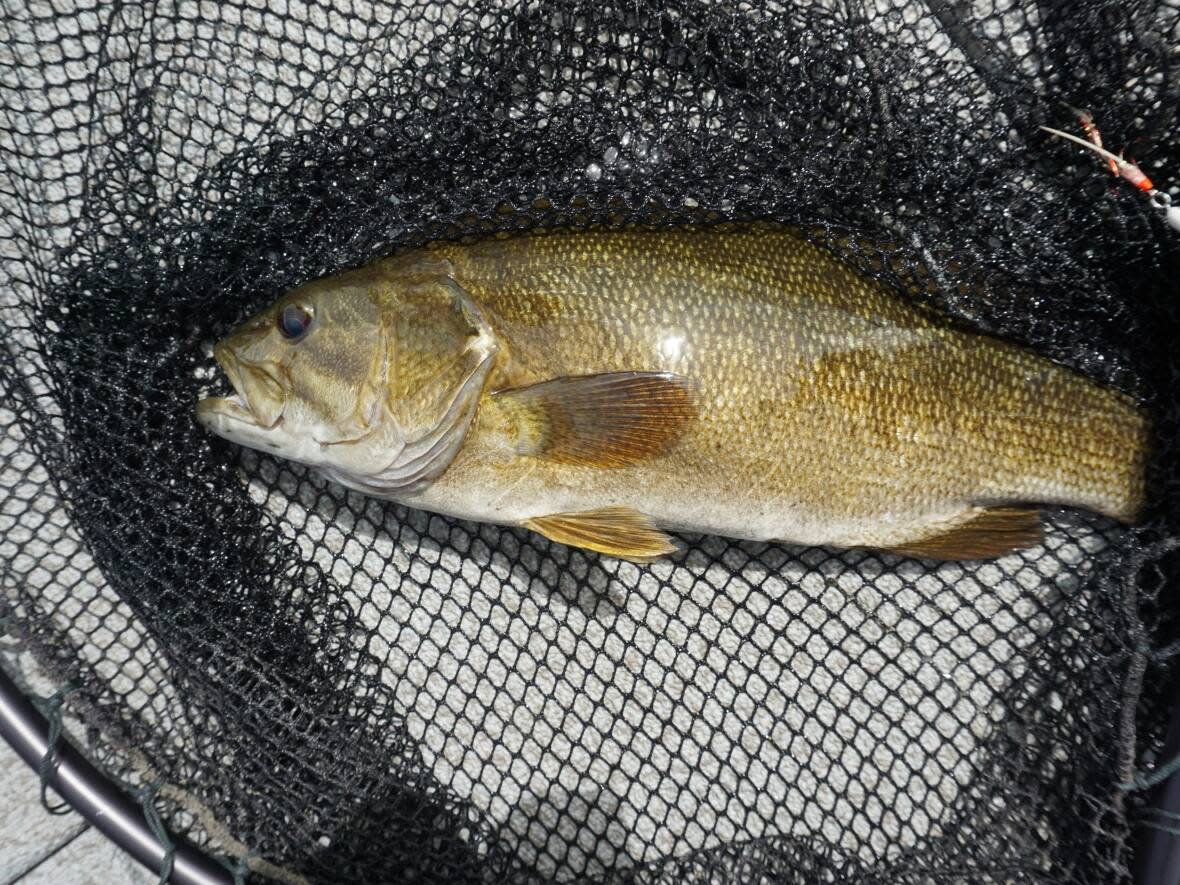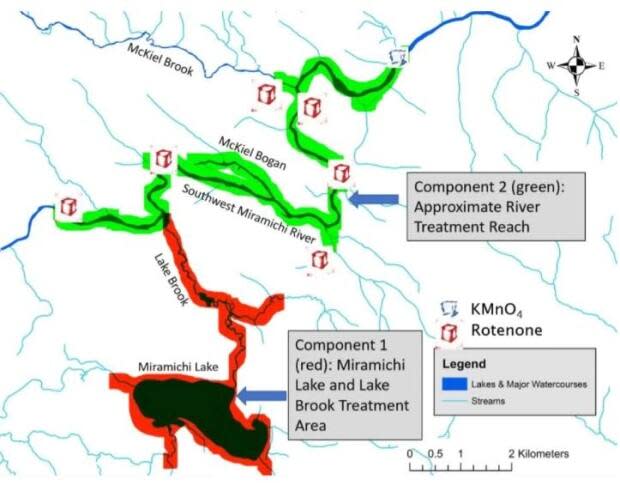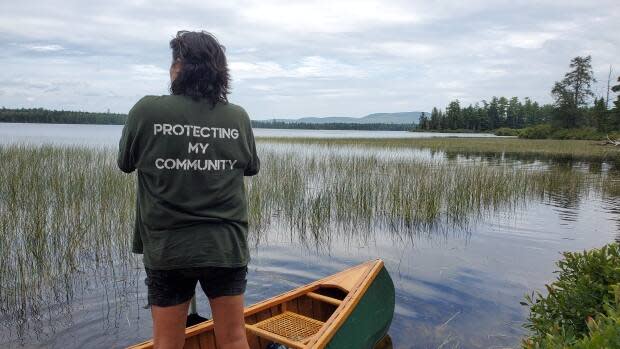Chemical spraying to kill invasive bass is back on for Miramichi watershed

After opponents stopped the project last year, chemical spraying to wipe out an invasive bass population in Miramichi Lake is set to take place later this summer.
Last year's attempt to eradicate smallmouth bass was halted because Wolastoqey grandmothers and mothers concerned about the environmental impact of the spray took to the lake in canoes.
It is unsafe to spray rotenone, the fish-killing pesticide being used, when people are on the water.
But the group that has been pushing the spray project for years says it's determined to carry it out this summer.

Neville Crabbe, a spokesperson for the Working Group on Smallmouth Bass Eradication in the Miramichi, said Thursday that the rotenone in the spray will be undetectable in the lake after 18 days.
In Lake Brook, and along 15 kilometres of the Southwest Miramichi River, rotenone and its formulants will be gone "much faster" because of the flowing freshwater coming in from the top of the watershed, he said.
For 18 days, people with cottages on Miramichi Lake will be told not to fish, boat or swim in the water. Signs will be posted around the area 24 hours ahead of the rotenone treatment.
Crabbe was unable to say whether cottage owners would still have access to their properties. However, he said the group will be asking people to remove their things from the water to allow for "a safe and successful treatment for our staff and volunteers."
According to the Department of Fisheries and Oceans Canada, smallmouth bass are considered an invasive species in southern and western New Brunswick.
In June 2021, the federal government gave the working group permission to eradicate the fish.
Desperate measures
The group includes the Atlantic Salmon Federation, the North Shore Micmac District Council and Anqotum.
Crabbe said smallmouth bass are a threat to Atlantic salmon and brook trout because they compete for food and habitat.
If action is not taken, hesaid, there is risk that smallmouth will spread throughout the entire Miramichi watershed.
The situation is "black and white," Crabbe said.
"We either take action, or we surrender the watershed to an invasive species."

In April, an in-person meeting took place in Fredericton between those concerned about the water, including Andrea Polchies, and members of the working group.
According to Polchies, she told the meeting she was not satisfied with the science justifying the chemical spraying. She said the working group should use electrofishing to control the smallmouth bass.

Polchies said she intends to go down to the lake again this year, and is expecting a larger crowd to join her.
"We're supposed to be protecting the water, not poisoning it," she said.
A dateless notice to Miramichi Lake cottage owners about the spray program says that in the coming weeks, electrofishing and small fish collection will be done for testing purposes.
Safety concerns
Trish Foster, who owns a cottage on the east side of the lake, said she's concerned about the safety of cottage owners during the spraying.

According to the label for Noxfish Fish Toxicant II, the rotenone product, those applying the pesticide are required to wear chemical-resistant protective equipment while carrying out spraying.
"Everybody out on the boat supplying the poison are going to be wearing, you know, full hazmat suits like you see in the science fiction movies," Foster said. "They're telling us we're perfectly fine to be here at our cottages."


